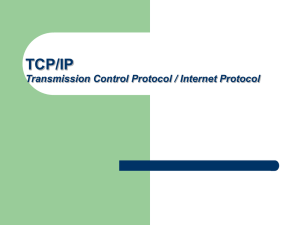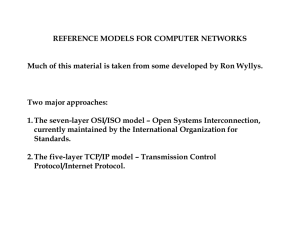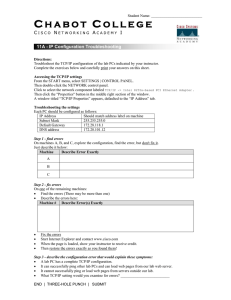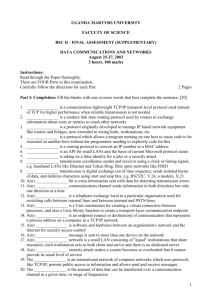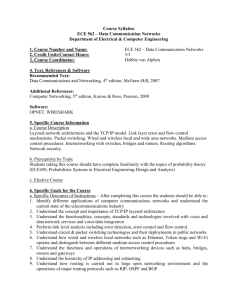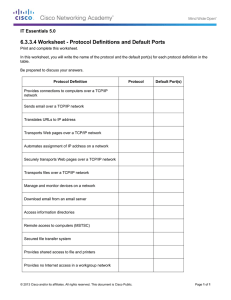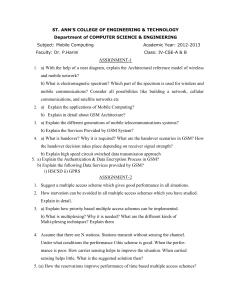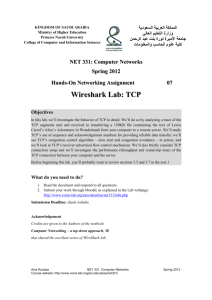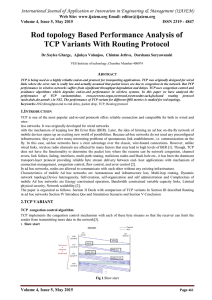Aziza Najib AL-Zadjali
advertisement
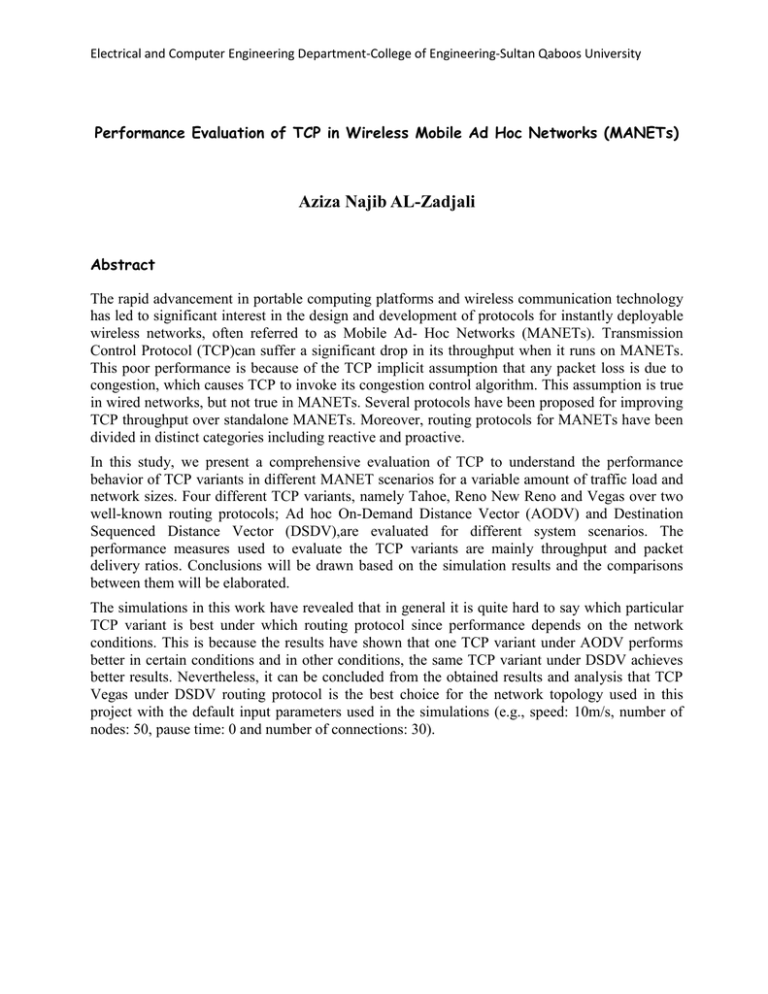
Electrical and Computer Engineering Department-College of Engineering-Sultan Qaboos University Performance Evaluation of TCP in Wireless Mobile Ad Hoc Networks (MANETs) Aziza Najib AL-Zadjali Abstract The rapid advancement in portable computing platforms and wireless communication technology has led to significant interest in the design and development of protocols for instantly deployable wireless networks, often referred to as Mobile Ad- Hoc Networks (MANETs). Transmission Control Protocol (TCP)can suffer a significant drop in its throughput when it runs on MANETs. This poor performance is because of the TCP implicit assumption that any packet loss is due to congestion, which causes TCP to invoke its congestion control algorithm. This assumption is true in wired networks, but not true in MANETs. Several protocols have been proposed for improving TCP throughput over standalone MANETs. Moreover, routing protocols for MANETs have been divided in distinct categories including reactive and proactive. In this study, we present a comprehensive evaluation of TCP to understand the performance behavior of TCP variants in different MANET scenarios for a variable amount of traffic load and network sizes. Four different TCP variants, namely Tahoe, Reno New Reno and Vegas over two well-known routing protocols; Ad hoc On-Demand Distance Vector (AODV) and Destination Sequenced Distance Vector (DSDV),are evaluated for different system scenarios. The performance measures used to evaluate the TCP variants are mainly throughput and packet delivery ratios. Conclusions will be drawn based on the simulation results and the comparisons between them will be elaborated. The simulations in this work have revealed that in general it is quite hard to say which particular TCP variant is best under which routing protocol since performance depends on the network conditions. This is because the results have shown that one TCP variant under AODV performs better in certain conditions and in other conditions, the same TCP variant under DSDV achieves better results. Nevertheless, it can be concluded from the obtained results and analysis that TCP Vegas under DSDV routing protocol is the best choice for the network topology used in this project with the default input parameters used in the simulations (e.g., speed: 10m/s, number of nodes: 50, pause time: 0 and number of connections: 30).

